STATEHOUSE REPORT | ISSUE 20.35 | AUG. 27, 2021
BIG STORY: Pressure on for special session, but GOP leaders seem to ignore
2022 ELECTION: A preview of the 2022 gubernatorial election
LOWCOUNTRY, Ariail: Pandemic responsibility
COMMENTARY, Brack: Let’s score victories for America, not just political points
SPOTLIGHT: SC Clips
FEEDBACK: Wants to know what should change
MYSTERY PHOTO: This one may be too hard
Pressure on for special session, but GOP leaders seem to ignore
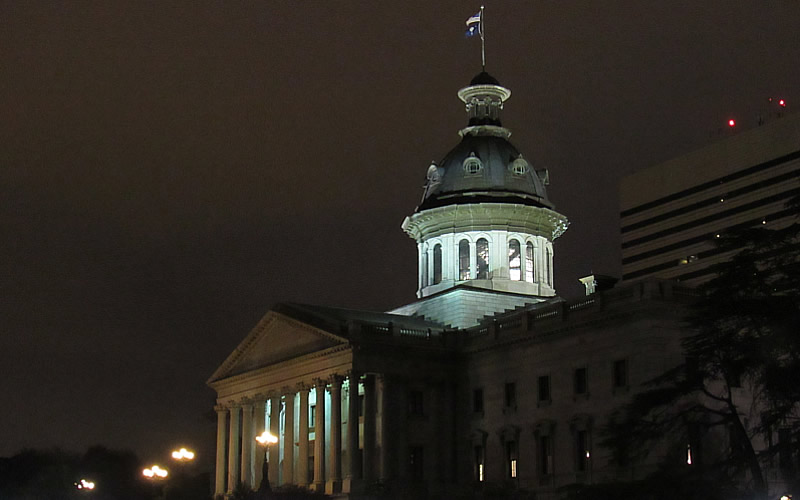
By Al Dozier | The pressure is on state lawmakers to hold an emergency session and revise a law that prohibits mask mandates in schools as COVID-19 gets deadlier each day across the Palmetto State.
On Thursday, the state Department of Health and Environmental Control (DHEC) reported one of its deadliest days during the pandemic in the last six months. The agency reported 56 deaths, bringing the statewide death toll to 10,413. It is the most deaths for any single day in South Carolina since Feb. 19 when the agency reported 67 total deaths for the day. DHEC also reported 3,259 confirmed cases and 986 “probable” cases on Thursday, bringing the total number of coronavirus cases to more than 707,000 throughout the state.
But so far despite calls by Democratic legislators and some Republican colleagues, state GOP leaders have not made a decision to call for a special session to deal with the possibility of a school mask mandate, which was banned in the current year budget, and other pandemic-related issues. Despite challenges and attacks, Republicans, including Gov. Henry McMaster, continue to oppose mask mandates in schools.

Rep. Nathan Ballentine, R-Richland, said an emergency session is unlikely to work.
“I do not see us revisiting the budget. That would take a two-thirds vote of both bodies and any changes would also require that amount of support. Additionally Governor McMaster is likely to veto any efforts to allow districts to decide.”
Ballentine said the General Assembly voted in the budget to give control to parents about their children’s health and safety.
“Masks can still be worn to protect individuals and others. The science shows our kids are at the least risk. Not no risk. But least risk. Teachers and other adults (and many kids) can be vaccinated to do their part.”

Rep. Chip Huggins, R-Lexington, held a similar view. He said the problem can be handled with the same health care measures used by families for other illnesses, such as the flu or pneumonia.
“Just stick to the basics,” he said.
Senate President Harvey Peeler, R-Cherokee, did not respond to a call requesting an interview.
“We’ve got to do something”
Other lawmakers say urgent action is needed.
“It’s hard to admit you did something wrong,” Rep. Leon Howard, D-Richland, said of the failure to call a special session. “But people are living in danger.”
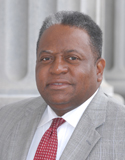
Howard is chairman of the House Medical, Military, Public and Municipal Affairs Committee.
Hutto said he couldn’t comprehend why his fellow lawmakers would oppose supporting such an important health problem.
“This is not a political issue,” he told Statehouse Report, though more Democrats than Republicans appear to favor mask mandates.
Meanwhile recently, state Sens. Brad Hutto, D-Orangeburg, Ronnie Sabb, D-Williamsburg, Luke Rankin, R-Horry, and Sandy Senn, R-Charleston, recently wrote a letter asking Peeler to call a special session as COVID-19 cases rise.
The senators say in the letter, “experts believe the spread of COVID-19 will explode” and that more than 1,000 doctors and pediatricians in the state have asked senators to return to session to reconsider the ban on masks in schools.
While some may view mask rules as a violation of “personal liberty,” Hutto in an interview said it boils down to normal safety precautions, such as seatbelts in a car.

The legislature must reconvene as soon as possible to address an ever-worsening pandemic, he said, adding “We’ve got to do something.”
Senn told Statehouse Report that she sees the problem as a “home rule” issue. She said local governments, not the state, should make such decisions based on their own particular situation.
DHEC also pushing on mask mandates
Another push for masks is coming from DHEC. With COVID-19 cases spiking in schools statewide, the board of South Carolina’s health agency last Friday instructed its director and chairman to contact state lawmakers to urge them to revise the law passed earlier this year that prohibits mask mandates in schools.
During the meeting, state epidemiologist Dr. Linda Bell and DHEC Public Health Director Dr. Brannon Traxler laid out the argument for mask mandates in schools.
The doctors noted the science shows having all people in schools wearing masks will protect students’ health and give them the best chance to succeed academically and socially.
The state is also facing legal challenges from a school district in the Columbia area.
The Richland 2 school district is asking the S.C. Supreme Court to block enforcement of the law banning mask requirements in school.
“South Carolina is in a state of public health emergency, as evidenced by the requirements that citizens must wear a face covering to enter a courthouse in the State,” said the filing, which asserts that masks are an effective means of preventing the spread of COVID-19, a highly contagious respiratory virus.
The filing questions whether the law that bans public schools from requiring masks is constitutional.
The inaction by lawmakers also has prompted some local jurisdictions to enact their own laws.
The city of Columbia has passed its own law mandating masks in schools, an action now under legal challenge from Attorney General Alan Wilson.
The legislature will meet in a special session, probably in September, to discuss budget issues and redistricting. Discussion of the mask mandate ban could surface during that session. The legislature will not convene again until the 2022 session in January.
Al Dozier of Columbia is a veteran Statehouse reporter. Have a comment? Send to feedback@statehousereport.com
A preview of the 2022 gubernatorial election

By Louis Jacobson, Almanac of American Politics | Henry McMaster, a longtime Republican officeholder in South Carolina, was elevated to the governorship in 2017 after Nikki Haley was confirmed as President Donald Trump’s ambassador to the United Nations. He won a full term in 2018 and is expected to run again in 2022, when he’ll be 75 on Election Day.

McMaster, a native of Columbia, received his bachelor’s degree from the University of South Carolina in 1969 and his law degree from the same university four years later. He served a year as a legislative assistant to U.S. Sen. Strom Thurmond, after which he built a private practice in South Carolina. In 1981, President Ronald Reagan appointed McMaster to serve as U.S. attorney. During his four years in the post, his office helped convict more than 100 people for importing nearly $1 billion in illegal drugs. In 1986, McMaster ran against longtime Democratic U.S. Sen. Ernest Hollings, but lost. Four years later, he ran for lieutenant governor and lost again. In 1991, then-Gov. Carroll Campbell appointed McMaster to the state Commission on Higher Education, and for most of the 1990s he headed the state Republican Party.
McMaster finally won elected statewide office—attorney general—2002. After securing the GOP nomination in a contested primary, McMaster defeated Democrat Steve Benjamin, 56 percent to 44 percent, and easily won a second term four years later. As attorney general, McMaster took a leading role in opposing the Affordable Care Act. He threw his hat into the ring for the open-seat gubernatorial race in 2010. The large Republican primary field also included Lt. Gov. André Bauer, Rep. Gresham Barrett, state Sen. Larry Grooms, and state Rep. Nikki Haley; Haley won the primary and then the general election. In 2014, McMaster ran for lieutenant governor, winning the Republican primary and defeating Democrat Bakari Sellers in the general election, 59 percent to 41 percent.
McMaster as a new governor
After being elevated to governor, McMaster’s early tenure featured plenty of legislative drama. McMaster vetoed a bill that would have raised the state’s gasoline tax for the first time since 1987, but the measure—which received support from the party’s business wing—became law after the legislature voted by a wide margin to override. He also drew fierce legislative opposition to a spending-bill veto that would have allotted $20.5 million to replace aging and fire-prone school buses; McMaster said it was unwise to earmark lottery funds for that purpose rather than for scholarships. The legislature overwhelmingly overrode that veto, too.
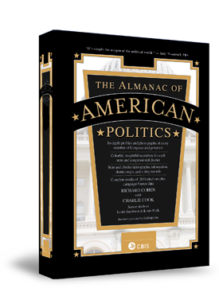 Both vetoes were widely believed to be fodder for the GOP’s anti-tax, small-government base as McMaster headed into what promised to be a tough primary season. McMaster made other moves that pleased the GOP base, however. He asked the federal government to stop the resettlement in South Carolina of refugees from the countries targeted by Trump’s travel ban; he signed an executive order protecting a foster care agency that limited its services to Christian families; and he vetoed almost $16 million in women’s health services to end state funding for Planned Parenthood. McMaster also worked, unsuccessfully, to block a proposed tariff that could have hit Samsung washing machines being built in a newly opened plant in the state, and he sought to derail a Trump administration plan to allow drilling off the Atlantic coast. McMaster, joined by the state’s congressional delegation, fought the Trump administration’s plan to shut down a partially built facility at the Savannah River Site that would reprocess plutonium from weapons into nuclear fuel. He also urged a sale of Santee Cooper, a state-owned electric utility saddled with $4 billion in nuclear-related debts, though some in the legislature pushed back on the idea. (In 2020, the utility would settle with ratepayers for $520 million over the nuclear plant debacle.)
Both vetoes were widely believed to be fodder for the GOP’s anti-tax, small-government base as McMaster headed into what promised to be a tough primary season. McMaster made other moves that pleased the GOP base, however. He asked the federal government to stop the resettlement in South Carolina of refugees from the countries targeted by Trump’s travel ban; he signed an executive order protecting a foster care agency that limited its services to Christian families; and he vetoed almost $16 million in women’s health services to end state funding for Planned Parenthood. McMaster also worked, unsuccessfully, to block a proposed tariff that could have hit Samsung washing machines being built in a newly opened plant in the state, and he sought to derail a Trump administration plan to allow drilling off the Atlantic coast. McMaster, joined by the state’s congressional delegation, fought the Trump administration’s plan to shut down a partially built facility at the Savannah River Site that would reprocess plutonium from weapons into nuclear fuel. He also urged a sale of Santee Cooper, a state-owned electric utility saddled with $4 billion in nuclear-related debts, though some in the legislature pushed back on the idea. (In 2020, the utility would settle with ratepayers for $520 million over the nuclear plant debacle.)
The 2018 election
In the 2018 primary, McMaster faced former state agency head Catherine Templeton, Lt. Gov. Kevin Bryant, former Lt. Gov. Yancey McGill, and businessman John Warren. McMaster received endorsements from South Carolina Citizens for Life and the National Rifle Association, and he touted a strong economy. But his opponents attacked him as an apostle of a tired and corrupt political establishment. Late in the campaign, Warren gained ground by leveraging his outsider profile. A 39-year-old Marine veteran from Upstate, he owned a mortgage lending firm; a relatively late entrant in the race, Warren spent $3 million from his own pocket, including a heavy run of television ads. McMaster finished first with 42 percent, followed by Warren with 28 percent, Templeton with 21 percent, Bryant with 7 percent, and McGill with 2 percent. That made McMaster the first modern South Carolina governor in either party to be forced into a primary runoff. On the eve of the runoff, Trump visited South Carolina to promote McMaster, who had been the first statewide official anywhere to back Trump before the state’s 2016 primary. Trump had the magic touch: McMaster prevailed, 54 percent to 46 percent, ceding only a few counties in Warren’s Upstate home base. Republicans “picked the candidate Trump liked over the Trump-like candidate,” The State newspaper wrote.
In the general election—running for the first time on a ticket with a lieutenant governor candidate, following a change in state law—McMaster faced state Rep. James Smith, who Democrats considered a strong candidate. Smith was an Afghanistan combat veteran and an experienced legislative hand who had easily won a three-way primary with the support of national Democratic leaders. But McMaster benefited from a fundraising edge and strong marks for handling the economy, and he won, 54 percent to 46 percent. Despite some modest gains over their 2014 performance, including areas in and around Charleston and Columbia, Democrats found that the final few percentage points needed to score a statewide victory remained elusive.
McMaster’s first full term
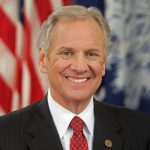
In 2019, McMaster shepherded a $115 million incentive plan to support a state-of-the-art facility for the NFL’s Charlotte Panthers to be constructed in Rock Hill, just across the border from the team’s North Carolina base. The facility was designed to be a hub for further economic development along I-77, which would be upgraded with a new interchange. He also approved a $159 million teacher pay raise and additional funding for school counselors. In general, legislators’ hopes of a more collaborative governorship than Haley’s or that of her predecessor, Mark Sanford, came true, though McMaster did have a rough time with several personnel matters. The Senate rejected the nominations of two figures close to McMaster: Stephen Morris to lead the Office on Aging and Charlie Condon as head of Santee Cooper. And McMaster’s efforts to name Robert Caslen, a retired three-star Army general, to the presidency of the University of South Carolina were met with student and faculty opposition, citing Caslen’s lack of experience in academia. Caslen was ultimately approved, but the university’s accreditor later concluded that McMaster had used undue influence in the hiring process. In 2021, Caslen resigned after portions of his commencement speech were found to have been given without attribution.
During the coronavirus pandemic in 2020, McMaster’s approach mirrored that of other Republican governors. He issued a stay-at-home order relatively late—he was the last of the 42 governors who did so—and then, within weeks, loosened restrictions on a wide swath of businesses and public amenities. And despite a summer spike in cases, McMaster declined to issue a statewide mask order. “We cannot live in fear of the virus and shut down every institution in sight,” he said. “It will not work, and it certainly won’t work here.” As in most other states, outcomes were generally independent of policy. South Carolina was in the middle of the pack in terms of COVID-19 death rates among the states.
In September as Trump was facing a tight reelection contest, the president backed off his plans to allow oil and gas drilling off the coast of South Carolina, as well as the coasts of Florida and Georgia, a victory for McMaster. And in early 2021, McMaster signed a “fetal heartbeat” bill that would ban all abortions if a heartbeat is detected, unless the pregnancy was caused by rape, incest, or threatened the life of the mother. The measure would also put the abortion provider at risk of a felony, with a possible prison sentence of two years.
The 2022 election
Despite having already become South Carolina’s oldest governor, McMaster is widely expected to run again in 2022. (His father, an attorney, was handling cases at 93 and died at 99.) In a development that should raise his profile and enhance his fundraising, McMaster joined the executive board of the Republican Governors Association in 2020. But he won’t have the field to himself. In a move that could portend a primary challenge, Warren formed a political action committee, and Templeton could mount another primary bid. On the Democratic side, the frontrunner is Steve Benjamin, who after his 2002 loss to McMaster for attorney general became the first African-American mayor of Columbia and served as president of the U.S. Conference of Mayors in 2018 and 2019. [Editor’s note: To date, former Congressman Joe Cunningham of Charleston, and state Sen. Mia McLeod and activist Gary Votour, both of Columbia, have announced as Democratic candidates for governor.]
Louis Jacobson is a senior author of the Almanac of American Politics. This column, republished with permission exclusively in South Carolina, comes from the almanac’s new 50th Commemorative Edition for 2022. It can be purchased online or by calling 1-888-265-0600. BONUS: Use the code “15AAP2022” for a 15 percent discount during check-out.
Next week: The Almanac’s look at South Carolina politics.
- Have a comment? Send to: feedback@statehousereport.com.
Pandemic responsibility
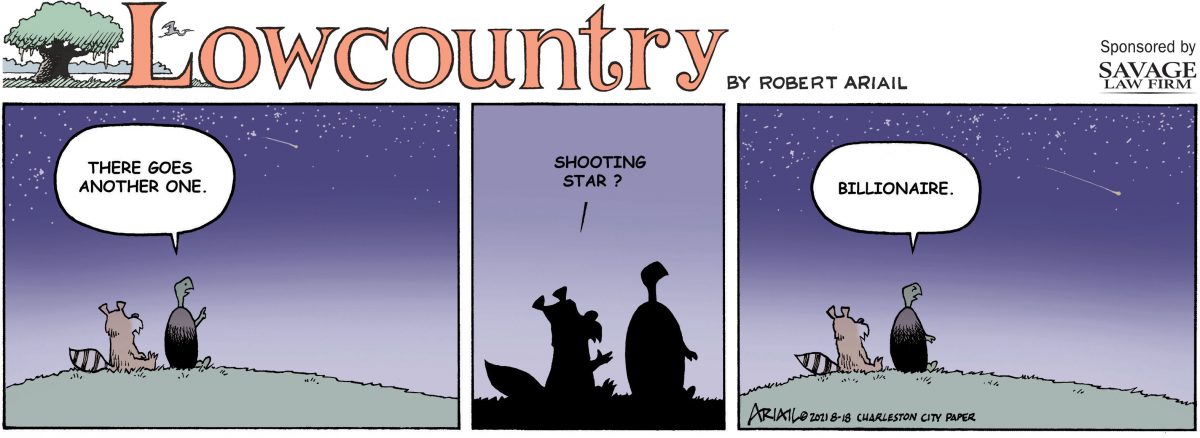
Cartoonist Robert Ariail always has an interesting take on what’s going on in South Carolina. His weekly “Lowcountry” strip is originally drawn for our sister publication, the Charleston City Paper. Love the cartoon? Hate it? What do you think: feedback@statehousereport.com. Check out the Best of Charleston 2021.
Let’s score victories for America, not just political points
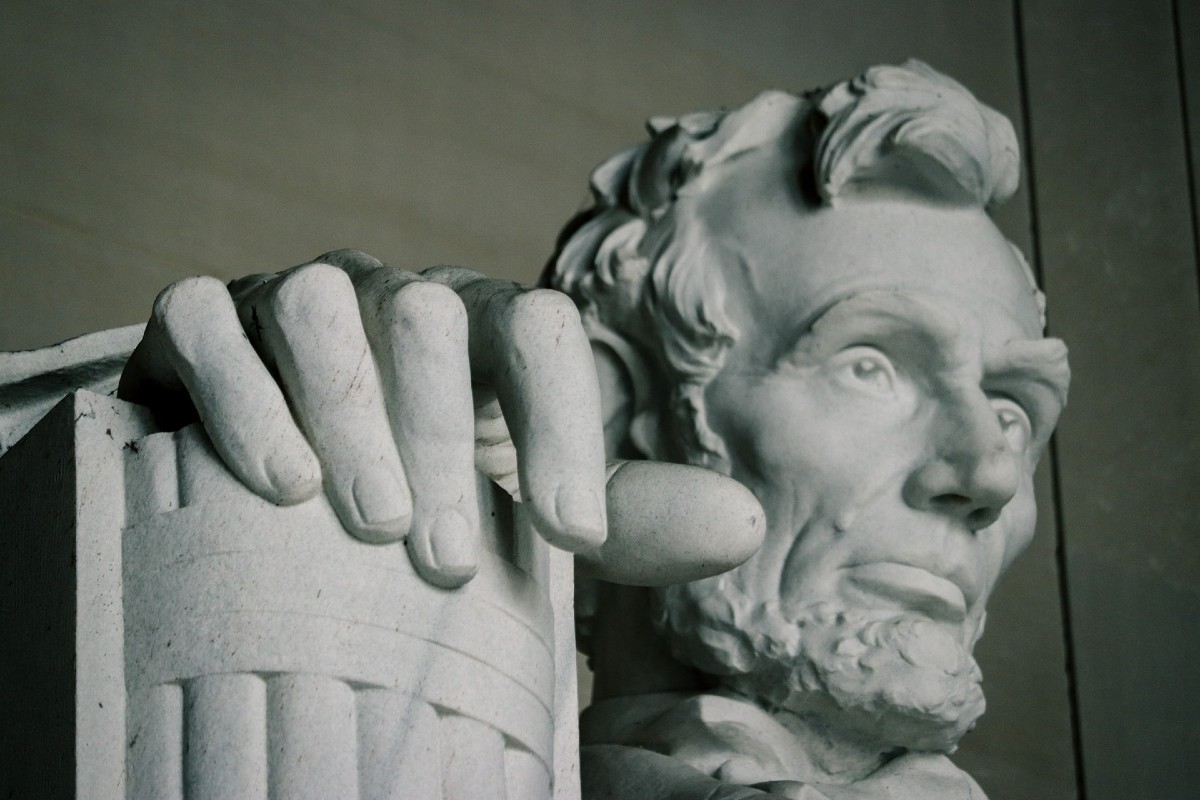
By Andy Brack, editor and publisher | Throughout South Carolina’s history, there has been a streak of independence that morphed into an ingrained hard-headed reactionary reflex. It’s not uncommon for people on either side of the aisle — and people who don’t even care about politics — to react in one similar way: “Don’t tell me what to do.”
 You can see it in the life of slave-holding patriot Christopher Gadsden before the Revolutionary War as he gathered like-minded people under an oak tree outside Charleston’s walled city to talk about liberty. He later designed the “Don’t Tread on Me” coiled snake flag that was appropriated by the modern tea party movement.
You can see it in the life of slave-holding patriot Christopher Gadsden before the Revolutionary War as he gathered like-minded people under an oak tree outside Charleston’s walled city to talk about liberty. He later designed the “Don’t Tread on Me” coiled snake flag that was appropriated by the modern tea party movement.
You can see it today in zealous people who get red in the face when told they or their children need to wear masks to protect themselves and others from getting COVID-19. They don’t listen to reason; they instinctively react on emotion, misinformation and the old “don’t tell me what to do” attitude.
The difference between now and 250 years ago is that people then believed governments could actually do something. And they did. They organized the nation’s economic system, provided for the common defense, built infrastructure, invested in public works, education and people. In short, a strong government created America as the world’s powerhouse and innovator.
Now, however, Americans are too susceptible to a discourse so coarse, so charged, so unwieldy that politics often is dumbed down to a word or phrase of two. And the nation suffers.
Someone who may be for government programs to help people is just a “libtard” or a “socialist,’ when, in fact, they’re not. Another who believes it’s important to rein in spending and maintain a moral backbone might be called a “right-wing nut” or “fascist” these days when, in fact, they might just believe in pinching pennies and following the teachings of the Bible.
For almost 50 years, political scientists — and the consultants who advise in our elections — have known something that most fail to believe — that Americans are relatively unsophisticated in how they approach discussions of policy and can be swayed pretty easily by manipulating language to charge political behavior. Hence, doctors who perform abortions are vilified as “baby killers” and abortion opponents are “right-to-life” nuts who hate women.
Jordan Ragusa, a political science professor at the College of Charleston, said the late Philip Converse described how most Americans have unstructured, unstable political views in a groundbreaking 1964 work, “The Nature of Belief Systems in Mass Publics.”
“He found very few Americans have what we would describe as a meaningful belief system,” Ragusa said. “Instead, they had haphazard policy ideas that didn’t show any relationship with another.”
Part of the reason may be in the way we govern. Our founding fathers created a system of checks and balances with three branches of government that makes it tough for things to happen. Laws are passed with approval of two differing legislative chambers.
“You get a lot of watered-down compromises that govern our lives,” Ragusa noted.
But our democracy, which features a social safety net in things like Social Security, Medicare, Medicaid, a strong national defense, is balanced by a capitalistic drive and structure for economic independence.
“It’s great to debate the role of government, but it’s unrealistic to say there should be no government,” said Ragusa’s colleague, political scientist Gibbs Knotts of Charleston. “What do you want to do — pave your own road? That’s ridiculous.”
For too long in recent years, Americans have been hearing that government is a problem. It may not always provide the best solution, but it’s not an enemy. What we need today are Republicans and Democrats and independents who want to make it work, not just score points daily at everyone else’s expense.
- Have a comment? Send to: feedback@statehousereport.com.
SC Clips
 Statehouse Report is brought to you weekly at no cost thanks to our underwriters. In the spotlight today is SC Clips, an affordable, daily information digest that provides you with the South Carolina news you need every business day. Subscribers receive a daily email news round-up before 10 a.m. that provides a link to each day’s edition of SC Clips.
Statehouse Report is brought to you weekly at no cost thanks to our underwriters. In the spotlight today is SC Clips, an affordable, daily information digest that provides you with the South Carolina news you need every business day. Subscribers receive a daily email news round-up before 10 a.m. that provides a link to each day’s edition of SC Clips.
Each issue (click for sample) provides a concise summary of dozens of the latest newspaper and television reports of news with statewide impact, politics, business and local stories. Readers also are linked to key opinions by South Carolina’s editorial writers.
- Learn more about this great news service that will save you time — which saves you money.
- Get a trial run at no cost.
Wants to know what should change
To the editor:
![]() I always read your article but don’t often agree with you. Most Democrats would agree with me if I gave up my belief in Jesus Christ and supported abortio. and not show a great amount of support for the U.S. flag. I was in the US Army 20 years; love that flag.
I always read your article but don’t often agree with you. Most Democrats would agree with me if I gave up my belief in Jesus Christ and supported abortio. and not show a great amount of support for the U.S. flag. I was in the US Army 20 years; love that flag.
I pay my taxes, go to church, do my civic duties, belong to the Lions Club, American Legion, Masonic Lodge, VFW and support a number of other charities (such as) St. Jude Hospital, the Shriners hospital and the Smile program.
I would really like a reply from you to tell me what I should change.
— Julius L. Brown, Hartsville, S.C.
Editor’s note: Here was our reply to Mr. Brown: “I don’t want you to change your beliefs at all. I just want people to be able to talk with each other with respect, exactly like you were doing with me. We need to have people acting more civilly instead of raising all sorts of hell all the time about everything. We can actually disagree about abortion and be friends at the same time. There is probably more than you think that we do agree on.”
Send us your thoughts. We receive a few comments a week and look forward to publishing. But often we can’t because we can’t verify the identity of the writer. To be published, you’ve got to provide us with contact information so we can verify your letters. Verified letters to the editor are published weekly. We reserve the right to edit for length and clarity. Comments are limited to 250 words or less. Please include your name and contact information.
- Send your letters or comments to: feedback@statehousereport.com
This one may be too hard
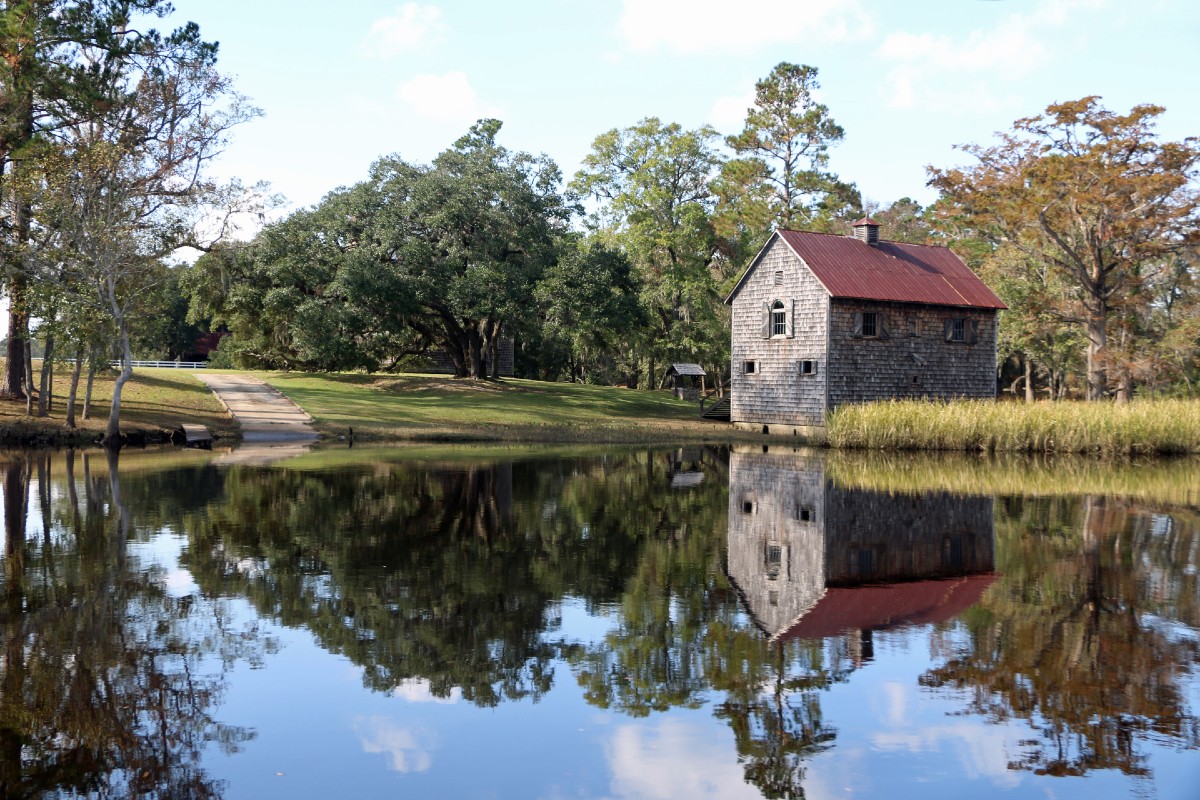
The reader who sent in this tranquil photo said it might be too hard to identify as few people have seen the building from this angle. But let’s give it a try — what and where is it? Send your guess to feedback@statehousereport.com — and remember to include your name, home city and contact information.
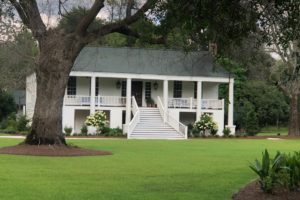 Last week’s mystery, “House with an interesting past,” was sent in by avid reader Barry Wingard of Florence, It shows, as detective George Graf of Palmyra, Va., wrote, a “heck of a transformation in saving a historic property,” notably the main house at Red Doe Plantation in Florence County.
Last week’s mystery, “House with an interesting past,” was sent in by avid reader Barry Wingard of Florence, It shows, as detective George Graf of Palmyra, Va., wrote, a “heck of a transformation in saving a historic property,” notably the main house at Red Doe Plantation in Florence County.
“The main house at Red Doe Plantation in Florence County was completed in 1846,” Graf told us. “The house is made of a wood frame construction reportedly with pegged joints. The original property included 1,006 acres and was a working cotton plantation. The home has changed hands at least a dozen times over the years. Nearly all of that time it remained in the ownership of descendants of the original owner, John Gregg, who bought the property in 1836 as a gift for his son, Evander.
“In the 1930s the property became known as ‘Red Doe,’ named for a Revolutionary War incident involving an escape to safety on a horse named Red Doe. In 1982, it was added to the National Register of Historic Places. In 2006, the Wilkins family who owned this property donated it to Pee Dee Rifles of Florence, who then formed a nonprofit organization called Red Doe, Inc. In 2012, the nonprofit began the task of cleaning up the property and making some minor restorations and then put it up for sale for $150,000.”
Others who correctly identified the photo were Elizabeth Jones of Columbia and Allan Peel of San Antonio, Texas.
- Send us a mystery. If you have a photo that you believe will stump readers, send it along (but make sure to tell us what it is because it may stump us too!) Send to: feedback@statehousereport.com and mark it as a photo submission. Thanks.
ORDER NOW: Copies are in Lowcountry-area bookstores now, but if you can’t swing by, you can order a copy online today.
ABOUT STATEHOUSE REPORT
Statehouse Report, founded in 2001 as a weekly legislative forecast that informs readers about what is going to happen in South Carolina politics and policy, is provided to you at no charge every Friday.
- Editor and publisher: Andy Brack, 843.670.3996
Donate today
We’re proud to offer Statehouse Report for free. For more than a dozen years, we’ve been the go-to place for insightful independent policy and political news and views in the Palmetto State. And we love it as much as you do.
But now, we can use your help. If you’ve been thinking of contributing to Statehouse Report over the years, now would be a great time to contribute as we deal with the crisis. In advance, thank you.
Buy the book
Now you can get a copy of editor and publisher Andy Brack’s We Can Do Better, South Carolina! ($14.99) as a paperback or as a Kindle book ($7.99). . The book of essays offers incisive commentaries by editor and publisher Andy Brack on the American South, the common good, vexing problems for the Palmetto State and interesting South Carolina leaders.
More
- Mailing address: Send inquiries by mail to: P.O. Box 21942, Charleston, SC 29413
- Subscriptions are free: Click to subscribe.
- We hope you’ll keep receiving the great news and information from Statehouse Report, but if you need to unsubscribe, go to the bottom of the weekly email issue and follow the instructions.
- Read our sister publications: Charleston City Paper (every Wednesday) | Charleston Currents (every Monday).
- © 2021, Statehouse Report, a publication of City Paper Publishing, LLC. All rights reserved.



